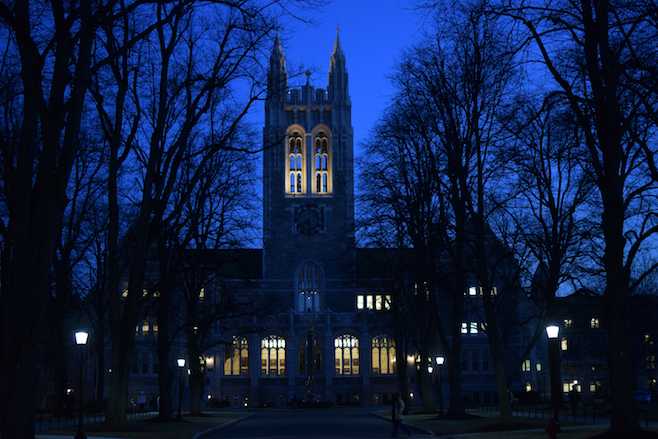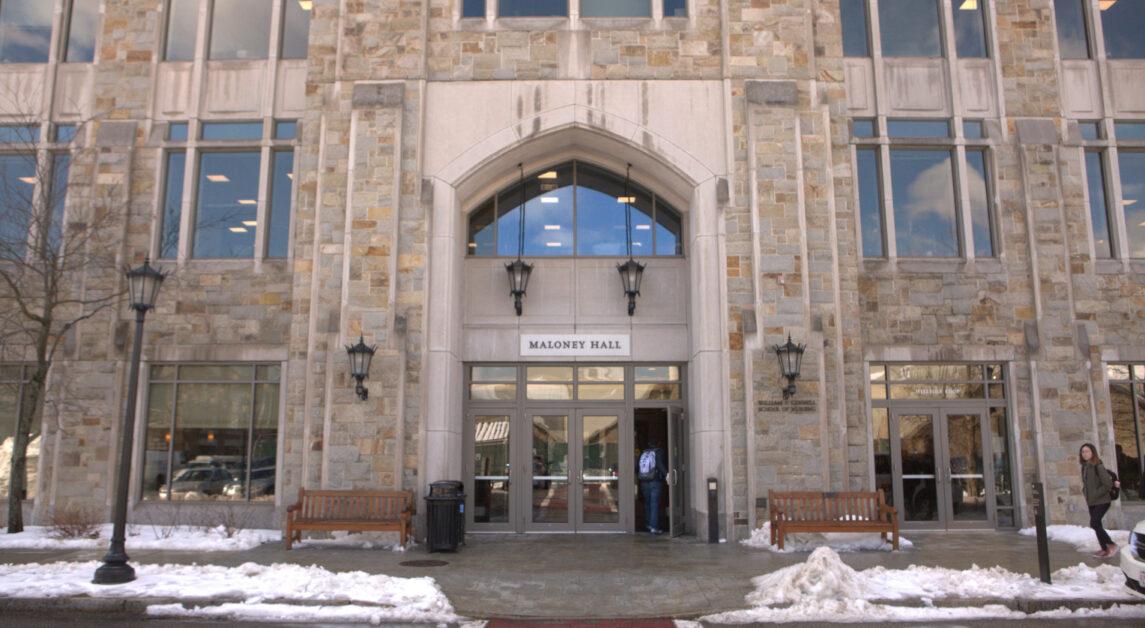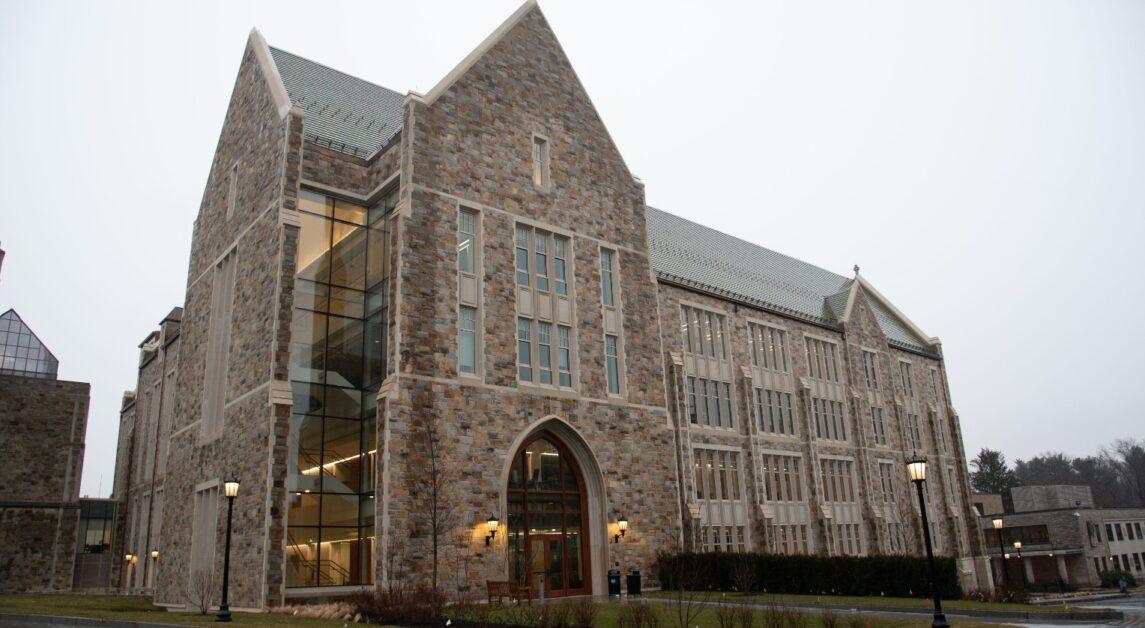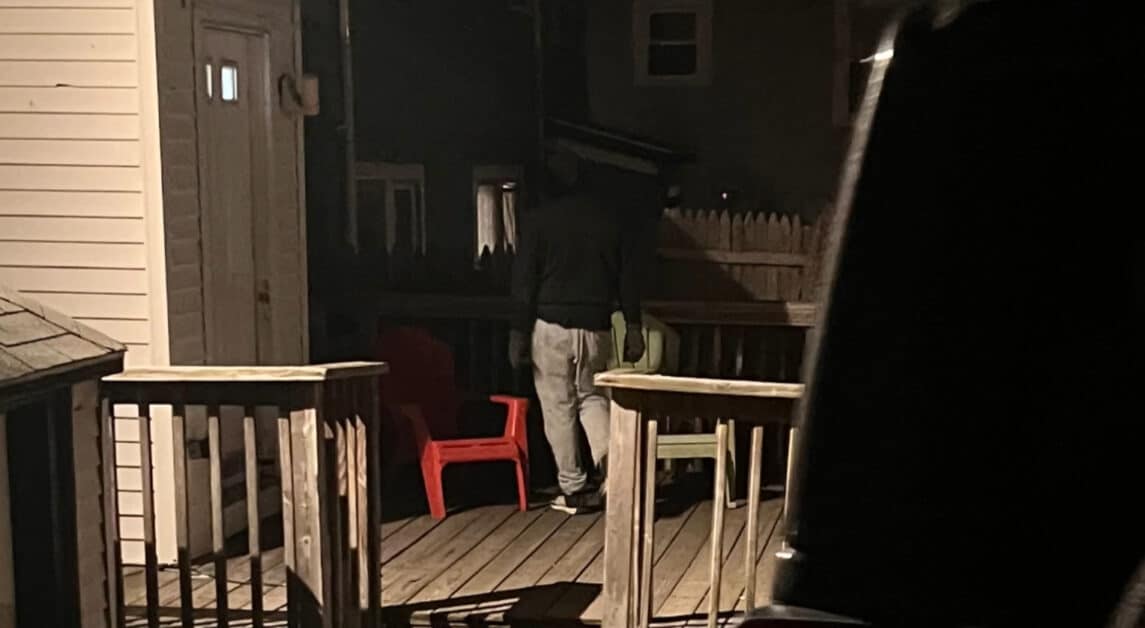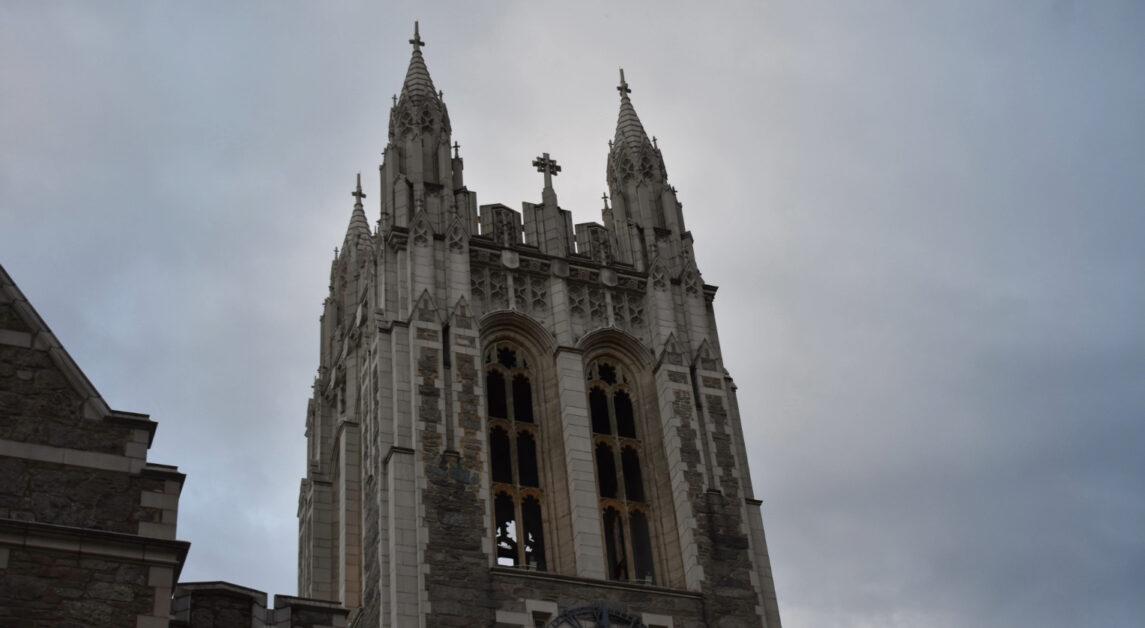The overturning of a Boston College student’s suspension in late August was largely due to a federal judge’s finding that BC’s investigatory model failed to adequately address questions of credibility in cases of sexual assault, according to recently released court proceedings.
A document submitted by the student’s legal team noted that he is a student-athlete. When weighing the decision to stay the suspension, the judge also wrote that the student’s “extracurricular activity is central to him,” according to the court transcript.
The University suspended the student, “John Doe,” on June 18 after finding him responsible for sexual assault in violation of BC’s Student Sexual Misconduct Policy. Last November, another BC student, “Jane Roe,” informed Associate Vice President of Student Affairs and Student Title IX Coordinator Melinda Stoops that Doe had engaged in a non-consensual sexual encounter with Roe while she was intoxicated. The University denied his appeal to this ruling on July 24.
On Aug. 20, presiding Judge Douglas P. Woodlock ordered BC to allow Doe to register for classes and participate in all University activities, according to his order of preliminary injunction.
BC filed an appeal of that decision on Aug. 28. The transcript of this hearing is yet to be released.
Associate Vice President for University Communication Jack Dunn, as well as Stoops both declined to comment, citing student privacy in an ongoing disciplinary matter.
Woodlock said in the transcript of the injunction hearing that the investigator-based model that BC uses failed to provide an opportunity for the two parties to propose lines of questioning and violated Doe’s right to a fair process. In cases of reported sexual misconduct, the University’s policy is to conduct an investigation that allows for the parties to sit for interviews, put forth evidence, name witnesses, and review the evidence collected. In this case, the investigators were Assistant Dean of Students Kristen O’Driscoll and external investigator Jennifer Davis.
The confidential investigatory report, which was submitted by O’Driscoll and Davis to Stoops and Associate Dean of Students Corey Kelly on June 11, detailed the investigative process and the ultimate findings. The University provided this document to the court ahead of the preliminary injunction hearing.
After Roe confirmed to Kelly in December that she wanted to go forward with BC’s sexual misconduct process, Kelly sent both parties “stay away” orders, which prohibited them from contacting each other. Doe and Kelly met three days later, according to a summary submitted by his attorneys.
Investigators began separately interviewing Doe and Roe in January, beginning with a two-day session with Roe. After her interview, the investigators sent a written summary to Roe, who had five days to provide comments. The investigatory report noted that O’Driscoll and Davis considered these comments, and all other post-interview comments, in the final summaries and the eventual report.
Following her first interview, O’Driscoll notified Doe that he had been accused of violating BC’s Sexual Misconduct Policy, specifically by “engaging in sexual contact … without [Roe’s] consent while [Roe] was incapacitated.” This initial notice also included a second charge of non-consensual touching, which was alleged to have occurred before the sexual contact.
Doe sat for an interview with the investigators six days later. Like Roe, he was given an opportunity to provide comments on a written summary. Doe also submitted photos of his bedroom, which is where the sexual encounter took place, and provided Uber receipts from that night.
The investigators conducted another interview with Doe and two more with Roe, again allowing them to submit comments on a written summary each time. Before his second interview, Doe requested to view the evidence that had been collected to that point, but the investigators informed him they would not share evidence with him before the follow-up meeting, according to the summary provided by Doe’s attorneys.
The investigators interviewed 17 witnesses, according to the investigatory report. They also reviewed Eagle ID records for Doe, Roe, and 11 other witnesses; several photos and videos taken of Roe throughout the night; Uber receipts belonging to both Doe and Roe from before the encounter; and text messages sent by the two parties to other students.
On April 5, O’Driscoll informed Doe and Roe that the completed evidence binder was available for review. Both parties and their representatives had 10 days to review the evidence binder and submit comments.
O’Driscoll told Doe that they were still finalizing their report on April 24, May 1, and May 21, according to the summary provided by Doe’s attorneys. On June 11, the investigators submitted the report to Stoops and Kelly, finding him responsible for sexual assault.
On June 18, Kelly informed Doe that he had been found responsible by a preponderance of the evidence for non-consensual penetrative sex. The investigators reported that while he neither knew or reasonably should have been able to know that Roe was incapacitated by alcohol, she did not give “clear and voluntary agreement” to sexual intercourse, regardless of her level of intoxication.
Although the Student Sexual Misconduct Policy states that consent cannot be obtained from an individual incapacitated due to drugs or alcohol, the investigators seemed to base much of their finding on Roe’s testimony that her refusal to let Doe remove her underwear constituted a physical boundary to their interaction.
Throughout this process, BC’s policy permitted the investigators to determine the relevance of all submitted evidence. BC does not specify what these interviews must include or whether one party’s questions and comments are actually raised during the other’s interviews.
Woodlock said that because the fundamental question in this case was one of witness credibility, BC must institute a robust investigatory model, including an opportunity for real-time cross examination of witnesses, to qualify as “fair process.”
At the hearing, Woodlock equated “fair process” in sexual misconduct cases to one’s constitutional due process rights during investigations at a public university. Throughout the hearing, he made several comparisons to Haidak v. University of Massachusetts at Amherst, in which the First Circuit ruled that public universities must provide an opportunity for real-time cross examination.
In its motion to deny Doe’s request for injunction, the University argued that it affords students with fair process rights so long as the University’s policy, as laid out in the Student Guide, was followed. BC also holds that as a private university, it does not need to provide an opportunity for cross examination. Since the Haidak case was at a public institution, BC argued its findings do not automatically apply to BC.
Furthermore, BC said that Doe was afforded the opportunity to review the evidence—including the summaries of witness interviews—and provide additional lines of questioning for the investigators to review.
“That the investigators did not deem additional information material to the outcome, or did not give any additional information the weight Doe would have preferred, is not actionable,” the University said in its pre-hearing motion to block the stay of the suspension.
During the interview process, the investigators at times informed each party of conflicting or key testimony from the other’s interviews, according to the investigatory report.
Real-time cross-examination does not require the accuser and the accused to be in the same room with one another or even to speak directly to each other, according to Woodlock. Instead, he suggested that such a process can be mediated through a hearing panel or representatives.
Woodlock again referenced the Haidak case, which states that a university must do more than presume that the investigators’ version of events is accurate. To do so, he argues, requires the use of real-time cross-examination to better inform the investigators of information they might have not otherwise obtained based on their model of investigation.
Woodlock also questioned the role of the Dean of Students Office and the Student Title IX Coordinator in the investigative process. In cases of alleged sexual misconduct, the Dean of Students Office and the Student Title IX Coordinator receive the final investigatory report “for their review and approval,” according to the 2018-19 Student Sexual Misconduct Policy.
In the 2019-20 policy, the Office of Student Conduct and Student Title IX Coordinator are charged with reviewing the report to “verify that the investigation was conducted in accordance with this policy and that the report adequately outlines the basis for the investigator’s findings.”
Stoops said in an email to The Heights that the University revises the policy every summer.
The University responded that the offices reviewed the report to make sure that the investigation was in compliance with BC’s policies and Title IX law. Woodlock remained unsatisfied with this explanation, asking again if there was anything in BC’s procedures to suggest that the review period was anything but a formality.
As in his questions about the lack of real-time cross examination, Woodlock suggested that in “subcontracting” credibility decisions to the investigators, BC had violated Doe’s right to fair process by combining the investigatory and adjudicatory processes.
Woodlock also ruled that the balance of hardships fell in Doe’s favor, explaining at the injunction hearing that he would suffer significant harm if the suspension were to be enforced before Doe’s complaints about fair process could be fully addressed.
The University argued that Doe failed to establish irreparable harm, as lost educational career opportunities are compensable damages. Woodlock disregarded this argument, especially because of Doe’s “particular skills” and the opportunities afforded to him at BC.
Doe’s team retained an expert, who provided information regarding the harms Doe would face as a result of lost earning potential. The expert’s affidavit is heavily redacted.
In response to the University’s claim that Roe would suffer hardship from Doe’s return, Woodlock expressed sympathy but ultimately decided that Doe’s presence on campus would just be “the status quo.” He said that with the suspension stayed, the parties returned to the exact position they had been in throughout the six-month investigation.
The University also argued in the motion to deny that staying the suspension would undermine its authority to address student misconduct and interfere with its duty to provide a hostility-free environment for its students. Woodlock said that he did not consider Doe’s return to campus a major harm to the University because staying the suspension would serve to establish an environment in which students feel protected as much as upholding it would.
The judge concluded that to rectify this situation, there needs to be a new disciplinary process with both new investigators and the inclusion of real-time cross-examination.
Featured Image by Celine Lim / Heights Editor

